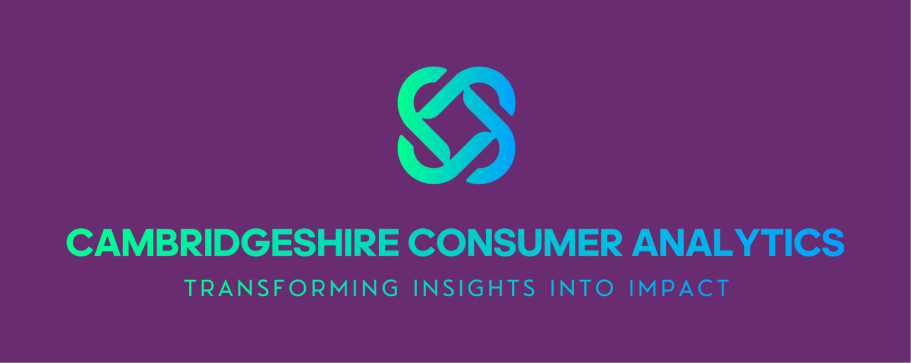Some of Our Research Tools.
At C.C.A., our research environment provides access to advanced analytic tools supported by AI algorithms and data processing. We foster an atmosphere that challenges our assumptions and creates a safe space to open minds and cultivate innovation.
Thematic Analysis
Thematic Analysis is a flexible research method that emphasises identifying, examining, and recording patterns within data. This approach can provide a rich, detailed, and complex account of the data. Themes are patterns across datasets that are important to the description of a phenomenon and are associated with a specific research question. Thematic analysis aims to identify, analyse, and report patterns (themes) to minimally describe data in rich detail.
Narrative Analysis
We use narrative analysis to examine how themes are used to support or challenge views and assertions made beyond descriptive communication. Narrative analysis helps us to investigate how narrative construction techniques might differ depending on the context of a specific campaign. Narrative analysis does not attempt to predefine factors or variables. The analysis of data seeks to acknowledge the context and understand the perceptions and schemata that influence human behaviours, mainly through the meanings that the speakers assign to them.
Surveys
The most common research tool used by most AI-NPL platforms. The validity and reliability of surveys are dependent on the accuracy of the questions presented and the reliable analysis of data. C.C.A. use a variety of survey formats depending on our clients specific requirements, timescale and budget.
Multivariate Analysis
Here, we examine different variables (or factors) and how they might impact certain situations or outcomes. For example, in a marketing campaign, we can review how the variable 'advertising revenue' impacts the variable number of sales.
Principle Methodologies & Methods We Use To Analyse Data.
Our recommended research methodologies and methods are meticulously selected and designed to meet your requirements.

Qualitative
Phone consultations, face-to-face participant interviews with our linguistic analysts. Tailored analysis underpins clear and concise reporting to meet your specific requirements.

Quantitative
Bespoke surveys are designed and coded by our experts. The generated respondent data is then analysed by our research staff. You can also access one of our template surveys as a cost-saving option with a 7-day turnaround.

Mixed Methods
A mix of qualitative and quantitative methodologies applied to the same research study. Face-to-Face interviews will inform a survey and can be used to triangulate the research study findings. Further interviews with focus groups or individuals can be carried out if needed.
Let Us Source Your Research Participants.
We can access participants and respondents for Focus Groups, Interviews, and Surveys for most industries, products, and services. We pride ourselves in selecting the right mix of participants to ensure that our analysis and findings are accurate, meaningful, and applicable to our clients.
Demographics & Psychographics
- General Population Participants – Everyday consumers or individuals representing the broader public.
- Targeted Demographics – Specific age groups, genders, ethnic backgrounds, income levels, or education levels.
- Psychographic Segments Participants grouped by attitudes, values, personality traits, or lifestyles.
Research Methodology
- Survey Respondents – Individuals who provide data through structured questionnaires.
- Interviewees – Participants engaged in one-on-one discussions for in-depth insights.
- Focus Group Members – Small groups discussing a topic for collective perspectives.
- Observational Participants – People whose behaviors are studied in real-world settings (e.g., ethnographic studies).

Expertise & Role
- Consumers/Customers – People who use or interact with a product, service, or brand.
- Industry Experts – Professionals with specialised knowledge relevant to the research topic.
- Decision Makers – Individuals with authority over purchasing or strategic choices in an organisation.
- Influencers and Opinion Leaders – People with the power to shape public opinion.
Based on Behavioural Characteristics
- Loyal Users – Individuals with strong brand/product preferences.
- New or Prospective Users – People who haven’t interacted with the product or service yet.
- Competitor Users – Those who engage with competing brands/products.
- Habitual vs. Occasional Users – Differentiated by frequency of usage or engagement.
Read about our research philosophy in our Journal Entry Blog
We constantly update this page with our latest features at: ccanalytics.blog
Perception Part 1 of 2
At Cambridgeshire Consumer Analytics (C.C.A.), we know that effective analysis begins with understanding why people make their choices— these include our clients, competitors, consumers, and even domestic or foreign political leaders. To do this well, we must possess the skills to adopt their perspectives, shaped by unique values, cultures, and often flawed assumptions.
Perception Part 2 of 2
In this post we will discuss how our mental models, once formed, have a powerful influence on how we interpret future events. We will give an example of how we often view problems drawing from past experience and embedding old thinking into new ways of thinking that creates a cognitive trap. The purpose of this post is to make us aware of a crucial challenge we need to work around; once our minds are set, it becomes very difficult to change them, even when new evidence contradicts what we originally believed.
Perception Taking – Solving a problem using Memory and Emotion over Logic
Following a local sewage spill, a wave of humour-driven rumours linked a business’s chocolate products to the incident. Though clearly untrue, the association quickly caught on—and sales dropped sharply.
The business responded with in-store denials and official statements, but none of it helped. In fact, the more they tried to explain, the worse things seemed to get.
Transforming Insights: Memory’s Role in Analysis
The Problem of Fragmented Thinking in Analysis
Much of this stems from what psychologists’ term anchoring and confirmation bias. These are cognitive shortcuts involving judgments based on heuristics and the first available fragments of information. Academics make interpretations through the lens of existing beliefs. Experienced medical practitioners, intelligence analysts, police investigators, and high profile advertising agents interpret symptoms and evidence through biases.
The Road Maps of Memory
In this journal entry, we explore the vital role memory plays in analytical thinking and how our higher-order cognitive functions help us navigate complex problems. Understanding memory is essential because how we register, store, and retrieve information directly affects the quality of our analysis and decision-making.
Smart Analysis Starts by Asking: What If I’m Wrong?
We explore why an intelligence analyst’s memory is a pivotal factor in analytic performance. Memory doesn’t just support recall, it actively shapes analytic judgment, which must strive to be right for the right reasons. We examine the difficulty of unlearning entrenched schemata. This unlearning inertia limits adaptability in fast-changing environments. It also compromises analytic accuracy.
The Francesca Gino Case: A Lens on Bias, Integrity, and the Fragility of Scientific Inquiry.
Read this entry to find out why scientific research does not occur in a vacuum. It unfolds within a system full of incentives. These incentives can distort integrity. They include the pressure to publish, career advancement, financial rewards, and the race to be first with novel findings. Journals often lack rigorous mechanisms to verify the validity or reliability of submitted research. The burden of proof falls largely on authors. Authors are themselves human—fallible, biased, and motivated.
©Copyright. All rights reserved. 2025
We need your consent to load the translations
We use a third-party service to translate the website content that may collect data about your activity. Please review the details in the privacy policy and accept the service to view the translations.







